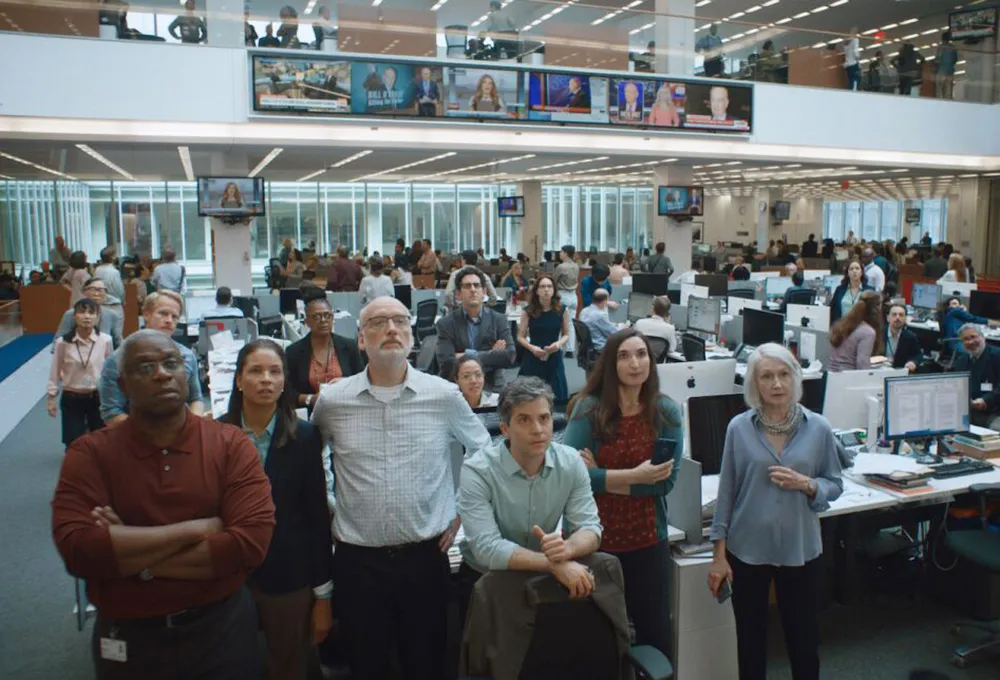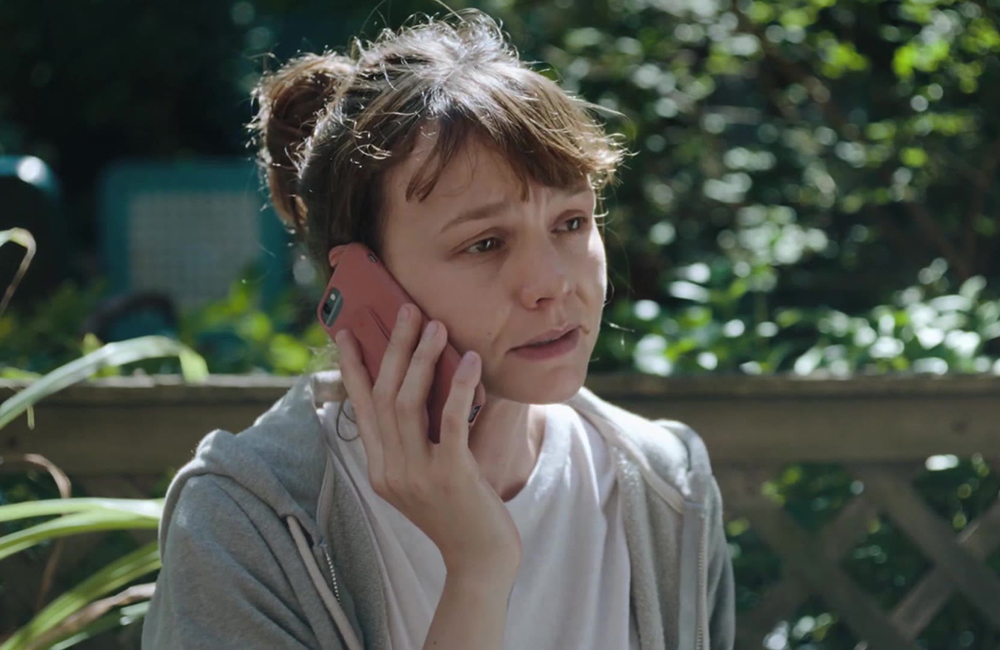
Maria Schrader’s “She Said” — based off the New York Times investigation by Jodi Kantor and Meghan Twohey — is powerful. It’s powerful, of course, as a journalism epic. Like “Spotlight” or “All the President’s Men,” it’s a wonderful portrayal of the craft of journalism. As late critic Roger Ebert said of Robert Redford and Dustin Hoffman in “All the President’s Men,” it’s a story about two actors (here Carey Mulligan and Zoe Kazan) who learn to be journalists, rather than an acting masterclass. It’s also powerful on another level. Where “President’s Men” is about uncovering a political scandal, and “Spotlight” was about exposing sex abuse in the newspapers when justice failed in the courts, “She Said” is about women-targeted sexism. It’s about how that feels, and how it affects the very investigation at stake. It feels ugly, as it should. And Schrader, Mulligan, and Kazan bring us into the world well.
There have been many powerful films about the press. And what the best ones do is bring viewers into this world and make you care. We care, firstly, because the journalists care. What Director Maria Schrader does with “She Said” is place its protagonists as everywomen — which of course they are. Twohey (Mulligan) has been working the beat of uncovering sexual harassment for a while. We see in the opening (the year is 2016) her getting a subject to go on the record against then-Presidential candidate Donald Trump with a sexual harassment accusation. Her phone call with Trump — as he needs to respond to the accusation for the story to go to press — is hard to witness. Trump is actually voiced by James Austin Johnson, but it’s uncannily accurate. It also sets the stage for threats from the accused in lieu of defenses.
Schrader, Mulligan, and Kazan Tackle Tough Material
So, from a conversation from Actress Rose McGowan — who will not go on record —Times journalist Jodi Kantor (Kazan) embarks on a quest to dig to the bottom of sexual harassment and rape accusations against Harvey Weinstein, Miramax film company magnate. She has trouble getting women to go on the record, and enlists the help of Meghan Twohey. Twohey has just had a child, and is going through likely postpartum depression. A phone conversation between the two sets the stage for the camaraderie they form. Kantor has two kids, and has been through this. We get the impression her sympathy for Twohey’s situation is just what she needed during a hard time.
And I think this is what works best about “She Said,” this unspoken bond between Kazan and Mulligan — between Kantor and Twohey — because they get it…get this thing they’re trying to uncover. For a moment Twohey questions wether investigating harms against Hollywood stars — women who already have a voice — is the right direction for the Times. But as we’ve already seen McGowan, who complains she brought several things to the Times (abuses and causes) that were relegated to the ‘Styles’ section, we see maybe they don’t have the voice that Twohey believes.

What Schrader does with “She Said” that makes it work is she builds a palpable fear that permeates the film. She does this with intimate camera shots (Natasha Braier is Cinematographer) that always makes you wonder. Twohey is called on her cell as she walks through Manhattan in one scene. The caller tells her he wants to ‘rape and kill her’ for her investigations on Trump. In another scene, though, Braier pulls the camera back during the day as Twohey and Kantor walk past two construction workers. They are just standing, but for a moment we wonder if they’re going to harass them. We’ve already seen a pushy bar patron interrupt their working lunch and call Twohey a ‘bitch’ in an earlier scene. The film lets you know what women often feel by simply existing, and many times it feels quite ugly.
Sexism and Harassment on Display
Being a journalism film, there is a lot of procedure here. Twohey and Kantor meet women of Weinstein’s past and present, all who have endured sexual harassment and rape, as well as sources that point them in the right direction. Mulligan and Kazan play the characters well. And while Mulligan was rightly nominated at the recent Golden Globes, I really feel so far award bodies have dropped the ball by ignoring Kazan, who is wonderful. Her desire to tell this story is palpable. One scene as she inadvertently lets a husband know his wife may have been victimized is hard to bear. And the film’s ending — when Actress Ashley Judd (who plays herself, but only via voice) agrees to go on the record contains the power of raw emotion. The look on Kazan’s face says it all, a silent ‘yes!’ that makes their whole investigation worth it.
The film’s score is somber and melancholy, and at times even intimidating. “She Said” makes you feel, often, that something bad will happen to the reporters during this investigation. And although it never does, I couldn’t help but think back to “All the Present’s Men” and Watergate. Bob Woodward and Carl Bernstein helmed an investigation that could bring down the president. But watching that film, I never felt their danger. But here, it’s startling; especially when you compare that Twohey and Kantor are merely trying to expose the truth about a Hollywood executive, and not the Commander in Chief of the whole country.
Another Score for Journalism Films

The film’s response — both critically and with regular audiences — has been favorable, but I think the alarming thing is that the criticisms I have heard really speak to the sexism that Twohey and Kantor must muddle through to get this story. And I think that’s what is so powerful about “She Said,” while also making it hard for some people to get through it: the film makes audiences confront the existence of sexism, many of whom may have never seen it this up close and personal. But to this writer, this is “She Said’s” greatest achievement. This isn’t an easy story to unravel, like “All the President’s Men” or even “Spotlight.” It’s messy and triggering. And it should be.
All-in-all, “She Said” is a spectacular film. It’s well-acted by its leads, and even ancillary performers (Patricia Clarkson, Andre Braugher) knock it out of the park. The film keeps its cool — like all good journalism films must. But there’s one scene, in the aforementioned bar, where Twohey loses it, just for a moment. It’s an earned and healthy reaction, and really shows the audience what’s at stake in this investigation. With solid source material, performances, and writing, “She Said” remains one of my favorite films of the year. Without moralizing it hits home hard. That we never get to see Weinstein (he’s currently serving a 23-year prison sentence), but only his impact, makes this accomplishment all the more impressive. Another score for journalism, and a score for Maria Schrader and cast, who will hopefully get more recognition at the 95th Academy Awards than they have so far.







Leave feedback about this